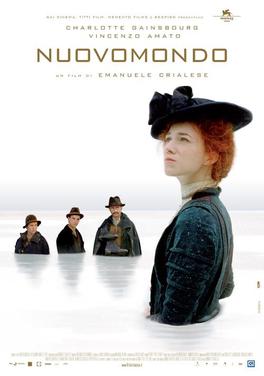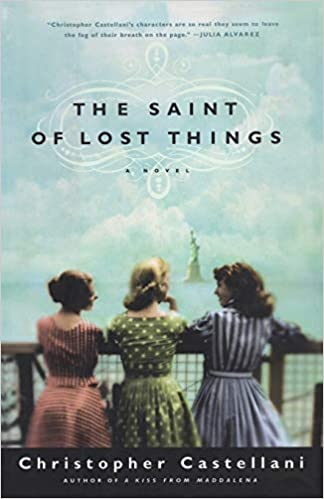By Michelle Kratts
If you are an American, this movie, Nuovomondo, a film written & directed by Emanuele Crialese, will deeply move you. It may even disturb you in ways that surprise you. Especially if you have had the opportunity to know your own immigrant ancestors or family members. This movie can be difficult to watch. It is an eye-opener. It is humbling.

When you think of it, the story of America is quite unusual. To be frank, it is actually quite brutal. There were people who lived here before the masses of immigrants arrived. For centuries it was forgotten that they even existed—except on the fringes of history. There were brutally murdered or pushed away into the places where they couldn’t be seen. Waves of others came to replace them. There were Americans brought here in shackles and chains at the mercy of their captors. There were Americans who disembarked as indentured servants. Some even came as criminals to work off their punishments in penal colonies. Women were brought to the New World, some sold by their families to be future wives of lonely settlers. Then there were people such as the Mancuso family who came as steerage, with nothing but a dream. They came here from lands of poverty, from desperation. Some even with mysteries (such as revealed by the character of Lucy Reed in the film) and a dubious past—wanting only to reinvent themselves.
The film very graphically and artistically represents the divide of the Old World and the New World. There is an unforgettable scene in which the ship separates from the dock. It is a visual parting of the two worlds. There are those who go forward, and those who stay behind. It is a somber moment where the reality of it becomes real. Those on the journey to America could not see far enough into the future to know how things would unfold.
My own family of Italian immigrants must have journeyed in quite a similar fashion. I have heard the stories. It was a horrific trip across the Atlantic—especially for those who had barely ventured out of the village of their birth. It must have been terrifying. And what would be there for them in America?

Salvatore Mancuso and his family believed America to be a magical place of abundant food and rivers of milk. They were duped by the false advertising that had swept across rural Europe. The fact was that workers were desperately needed in America – to work the land, to stoke the fires in the factories. They were needed for backbreaking labor. The advertisements appealed to the unknowing poverty stricken and illiterate peasants. At least in America, you work for yourself. After all, anything is possible in such an abundant and fertile land. But can you imagine how these new immigrants felt after they came to American only to spend every waking moment of their lives in a coal mine? Dying of black lung. Some immigrants were conscripted directly into the military upon arrival. How many immigrants came here only to perish on an American battlefield?
Golden Door is a sad story, but it is an American story that continues even to this day. Thinking of the new immigrants who arrive at our borders at the present time—how different are they? Distressed, broken, unwashed after a long a brutal journey, treated as animals by immigration. They all have their dreams of something better. Maybe if not for them, it will be for their children, their grandchildren, maybe.
The Saint of Lost Things, a novel by Christopher Castellani, takes the reader beyond Ellis Island. It tells the tale of the Grasso family—a new American family who had come to the United States after the Second World War, in the 1950s. Again, a sadness permeates the story—a sadness from the difficulty people have letting go of everything they have ever known and the acknowledgement that “the world turns on cruelty.” Life is not always kind, yet somehow, we all need kindness. We all need to survive and to thrive as best we can. For maybe the next generations will live the life we dreamed of for ourselves. Maybe.

